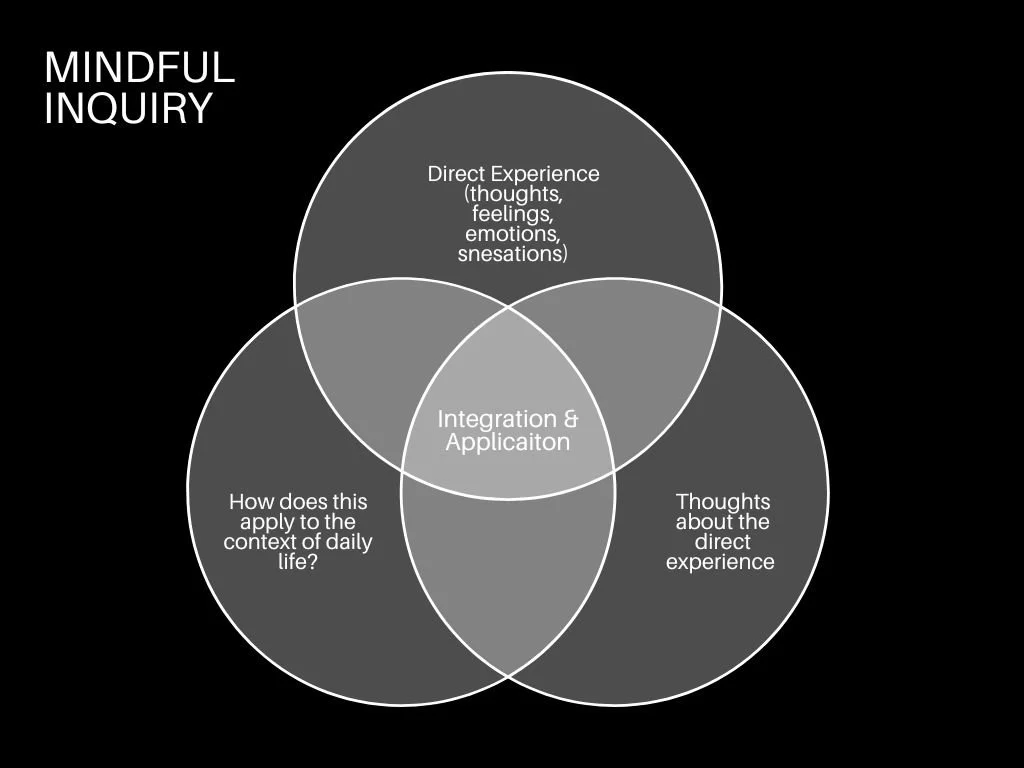Contemplation (2 of 4)
Following on from the previous post - ‘a simple framework for transformation’:
Meditation > Contemplation > Integration > Transformation
This is a brief on the second element.
This quote may come across provacative to some and harsh to others:
The unexamined life is not worth living - Socrates
Perhaps an overused quote, but perhaps not something nowadays we really put into action, at least as much as it was in ancient times.
There is serious value in witnessing one’s own experience - I feel this strongly as it is my experience in the process of transformation.
Meditation for me has been the path to really become intimate with myself, get up and close to thoughts, feelings, emotions…to learn about what drives me - why I do what I do.
I’ve said before, it’s been vital in the process of behaviour change, but it’s only the first part of the process…
…what perhaps is even more important is self-inquiry, reflection and contemplation in order to really acknowledge the direct experience during meditation, then make sense of it and ultimately then integrate and apply this to daily life.
This logical and objective investigation after meditation or some trigger or experience which affects you, is an aid to spiritual wisdom - one cannot gain wisdom without inquiry - you have an experience, it impacts you in some way - chemically, emotionally, mentally…but without the reflection and contemplation it soon becomes a distant memory.
Below is a sequence you can try after your meditation or after you’ve been triggered and you notice an internal shift:
(best employed with compassion and curiousity not condemnation or judgment)
What was the direct experience:
What thoughts, feelings, emotions showed up, how did they feel in the body. What was your reactions to what happened? What actually happened, in detail.
What are your thoughts about what happened:
What did you notice about your reactivity…reflect what you noticed about yourself during the experience. Are there any repeating patterns?
How does this apply to my daily life:
In the context of what I’m working on…does this move me closer to my vision or further away. How can I take action on what I am learning?
Contemplation requires a cool light - objectivity and (eventually) a diffusion of emotion…but to be able sit with and truly gain insight…one must first go into the heat and intensity of painful memories, the regret, or guilt, sadness or shame…and burn a little.
And know that this is the purification…the only stuff that burns away is impure, what’s left is the gold of spirit and the light of wisdom.
This is inner alchemy - take the pain and the wounds and turn into wisdom and a new way of being.
To meet these things about ourselves if challenging - this is why it’s not common to engage in, but in the process of transformation, it’s imperative to be released from them in order to create anew.
I’ve noticed that through this patient, consistent and committed practice of self-inquiry a lot of the charged emotion associated with my memories and traumatic experiences…eventually became discharged of the emotion….and Joe Dispenza says that “memory without emotional charge becomes wisdom.”
So through self-inquiry, cool contemplation...your own experience is your teacher. You are your own guru.
And as we begin to become free of this heavy baggage, we not only lighter - physically, emotionally and mentally - but also are beginning to open up space to being implementing new patterns of thought and action to intgegrate.
Now with purposeful intention in the direction we want to travel.
Next up in this series: integration. Taking action on what you are beginning to see.
Let’s walk together.x
Arjun

